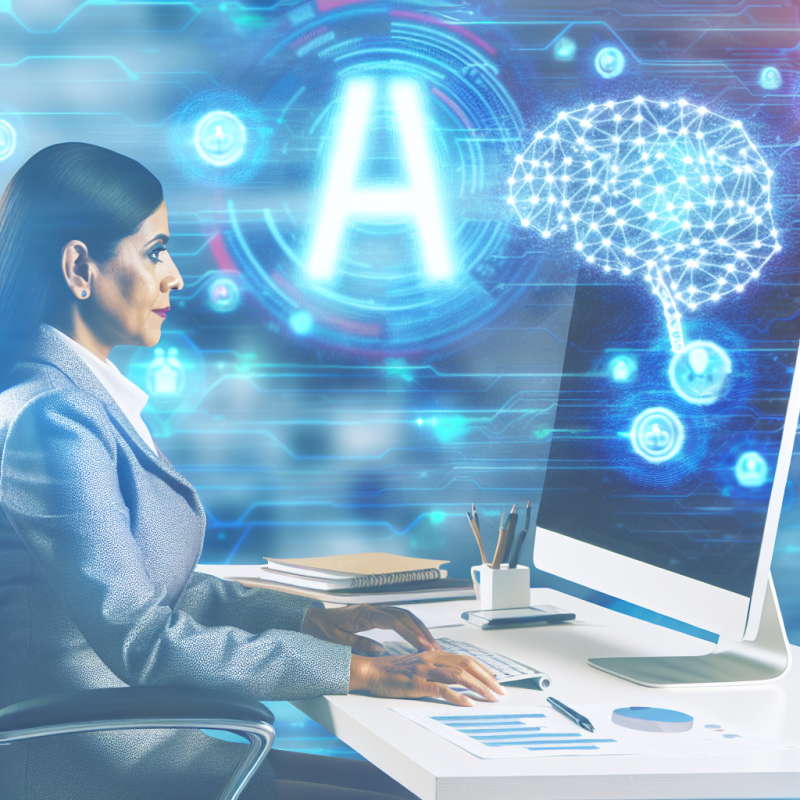AI ethics is all about making sure that artificial intelligence is developed and used in ways that are fair, responsible, and safe for everyone. It’s a way of asking the important questions: How does AI affect our lives? Is it making things better, or could it create new problems? By looking at these issues, we can guide the way AI technology grows.
At the heart of AI ethics are a few key principles. For instance, fairness ensures that AI doesn’t discriminate against certain groups of people. This means that everyone should have equal access to the benefits of AI, regardless of their background. Transparency is another biggie; it’s crucial for people to understand how AI makes decisions. If something goes wrong, we want to know why it happened.
Privacy is another essential component. As AI systems collect more data, we need to be careful about how that information is used and who gets access to it. We all want our personal info to stay safe and secure, right? And then there’s accountability. If an AI makes a mistake, who’s responsible? These are the types of questions that AI ethics aims to explore.
Ultimately, AI ethics isn't just for experts or tech companies. It’s something everyone should care about because AI is becoming a part of our daily lives, from smart devices to online services. By understanding and discussing these ethical considerations, we can work together to shape a future where technology serves everyone well.
Key Principles of Ethical AI
First up is **transparency**. People want to know how AI makes decisions and what data it relies on. By being open about the processes and algorithms used, we can build trust and encourage more ethical practices within the industry. When users understand how AI works, they're more likely to feel comfortable and secure using it.
Next, there's **fairness**. We need to ensure that AI systems don’t favor one group over another. This means actively identifying and addressing any biases in the data used to train AI. By prioritizing fairness, we can help create technology that serves everyone equally, preventing discriminatory outcomes that could affect people's lives negatively.
Finally, we have **accountability**. Developers and organizations should take responsibility for their AI systems. If something goes wrong, it’s important to have clear channels for addressing issues and rectifying mistakes. Having a system in place for accountability helps reinforce ethical behavior and encourages continuous improvement in AI applications.
Real World Examples of AI Ethics
When diving into AI ethics, it's helpful to look at real-world scenarios to see how ethical considerations play out. One prominent example arises from facial recognition technology. In certain cities, this tech has been used to identify suspects, but it’s sparked huge debates about privacy and surveillance. While some argue it enhances safety, others point out the risks of profiling and misidentification, especially among minority groups. This situation highlights the balance between security and personal rights.
Another area to consider is AI in hiring processes. Companies are increasingly using algorithms to sort through applications, which speeds up recruitment. But there’s a catch: if the data used to train these systems is biased, it can lead to unfair treatment of candidates. For example, if an AI system learns from previous hiring practices that favored one demographic, it might continue that trend, potentially overlooking talented individuals from diverse backgrounds.
Healthcare is also feeling the impact of AI ethics. With AI-driven tools predicting diseases or suggesting treatments, there's much promise. However, transparency is key. If a software suggests a treatment based on algorithms, patients and doctors need to understand how those decisions were made—especially when life-and-death choices are on the line. Balancing technology and human insight is vital for ethical AI use in this sensitive field.
Finally, consider the use of AI in social media moderation. Platforms use AI to detect harmful content, but these systems can struggle with context. Sometimes, they might flag a post that shouldn’t be removed or miss something serious. This raises questions about accountability: who decides what gets flagged, and how do we ensure these systems are fair and accurate? This situation underlines the necessity for continuous review and refinement of AI systems to uphold ethical standards.
How to Apply AI Ethics Today
Applying AI ethics isn't just a lofty goal for the future; it's something we can start doing today! It begins with understanding the implications of the technology we create and use. Here are some friendly tips on how to incorporate AI ethics into your daily life and work.
First, always think about fairness. When designing or using AI systems, ask yourself: is this fair to everyone? Make sure your data is diverse and inclusive. This helps avoid biases that can creep into AI algorithms. For instance, check if your training data represents different groups of people. If it doesn't, you might end up unintentionally sidelining certain voices.
Next, prioritize transparency. It’s important to know how and why AI makes decisions. If you’re using AI in projects, try to explain its workings in straightforward terms. This not only builds trust but helps users understand the technology better. Encourage open conversations about how the AI functions and the data it relies on.
Another key aspect is accountability. When things go wrong, who takes responsibility? It’s crucial to establish clear lines of accountability in AI projects. Make sure there’s a designated person or team ready to address any issues that arise. This doesn’t just protect users; it reflects good practice and enhances the tech's reliability.
Lastly, keep learning and engaging with the community. AI ethics is an evolving field, and staying updated is essential. Join forums, attend workshops, and participate in discussions. By sharing ideas and experiences, we can help shape a future where AI benefits everyone while upholding ethical standards.



